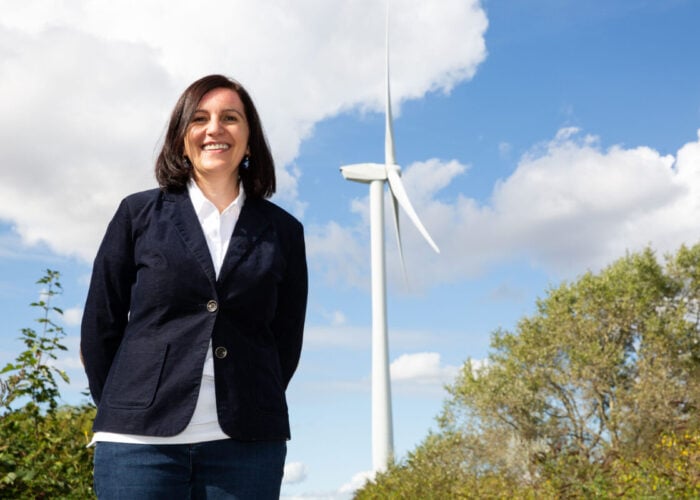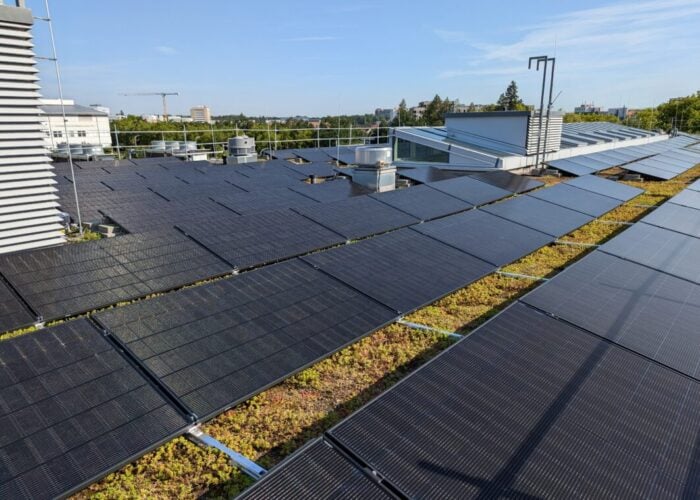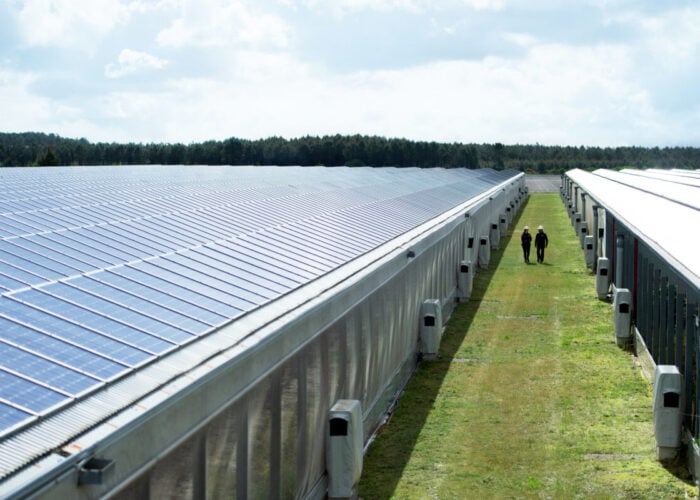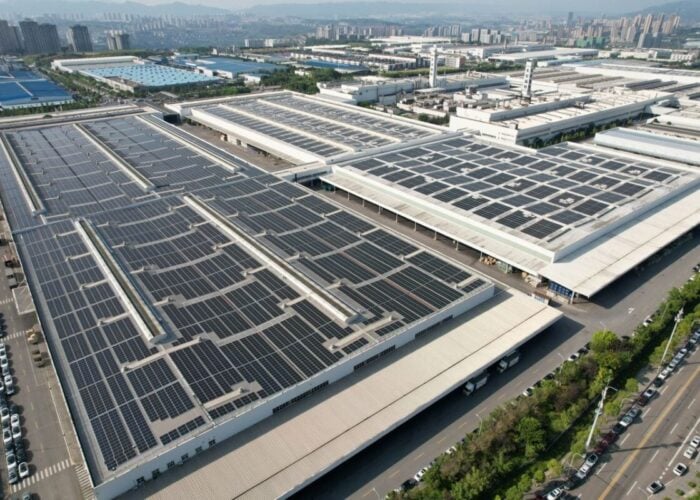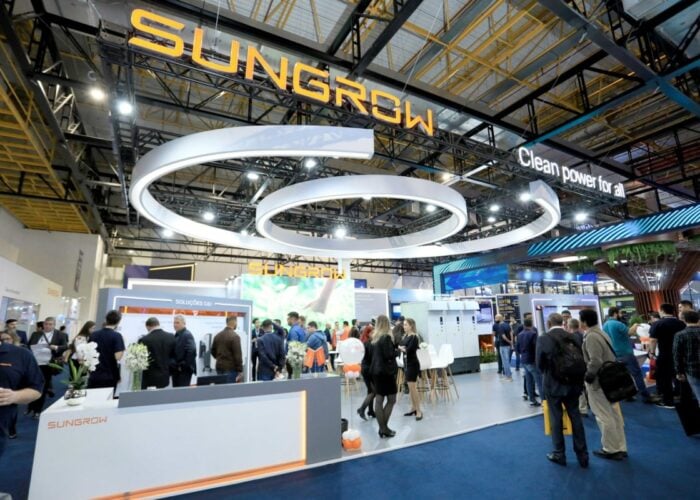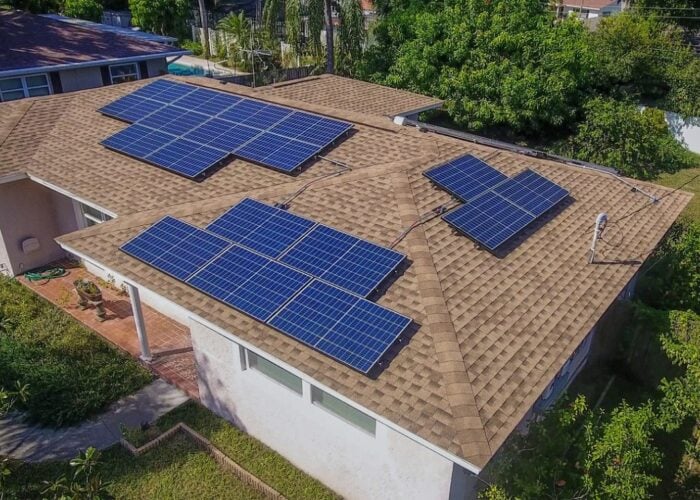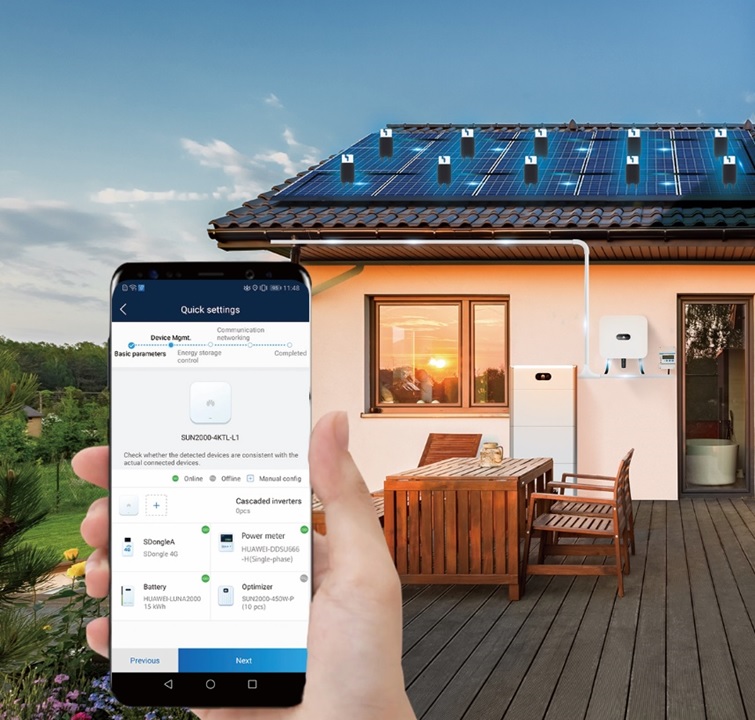
Huawei has launched its next generation ‘FusionSolar’ residential smart PV solution with the emphasis on innovative smart technologies to provide the easiest and highest safety installation standards and long-term operability that aims for 100% self-consumption.
Problem
Unlock unlimited access for 12 whole months of distinctive global analysis
Photovoltaics International is now included.
- Regular insight and analysis of the industry’s biggest developments
- In-depth interviews with the industry’s leading figures
- Unlimited digital access to the PV Tech Power journal catalogue
- Unlimited digital access to the Photovoltaics International journal catalogue
- Access to more than 1,000 technical papers
- Discounts on Solar Media’s portfolio of events, in-person and virtual
Residential PV rooftop systems need to meet increased demand for higher levels of self-consumption. Energy storage systems are therefore required. However, residential installers need to provide homeowners with a robust, future-proofed self-consumption system that remains highly efficient, flexible and faster to install and come with smart solutions for user needs and customer service such as remote fault diagnostics for minimal maintenance.
Solution
PV energy generated by solar panels meets the electricity demand of homes in the daytime, and the surplus energy generated is used to charge batteries, which then discharge to meet peak electricity requirements at night and in the morning. In this way, residential PV systems could achieve high self-consumption levels. Huawei's residential intelligent battery LUNA2000 is the highlight of the solution. This battery features a streamlined appearance and uses lithium iron phosphate cells for increased safety. It adopts modular design and supports flexible power expansion (5–30 kWh). Each battery pack has a built-in energy optimizer and supports independent charge and discharge management. The FusionSolar system is available with optional PV power optimizers that limit residential shading issues and enable complex mixed orientated rooftops to efficiently be deployed with a PV system. Huawei designed power optimizers could maximize PV modules' energy yields by up to 30%, regardless of shading and inconsistent orientations, according to the company. The AI-Powered Arc Fault Circuit Interrupter (AFCI) proactively mitigate fire risk with rapid shutdown technologies achieving zero voltage on the rooftop and zero arc risks for dual-layer protection. Huawei is the first in the industry to integrate the AI algorithm into AFCI, enabling three unique features. First, the AI model continuously and efficiently learns more arc features, forming a database with over millions of arc signatures. Second, more than 92 arc features comparison points are identified and analyzed based on the powerful computing capability of the local chip to implement precise detection and accurate reporting for better protection. Third, the power system is shut down within 0.5s, which is much shorter than 2.5s specified in the industry standard.
Applications
Residential rooftops.
Platform
The FusionSolar smart residential PV inverter portfolio consists of both single and three phase products. The single-phase string inverter comes in the SUN2000-2/3/3.68/4/4.6/5/6KTL-L1 classes with 2 MPPT inputs and built in WLAN and optional Smart Dongle-WLAN-FE or Smart Dongle-4G communication. The single-phase inverters are compatible with Huawei’s SUN2000-450W-P power optimizers. The three-phase string inverter comes in the SUN2000-3/4/5/6/8/10KTL-M1 classes with 2 MPPT inputs and built in WLAN and Smart Dongle-WLAN-FE or optional Smart Dongle-4G communication. This is also compatible with Huawei’s SUN2000-450W-P power optimizers and includes Huawei’s PID Recovery solution. The Smart Energy Storage System, LUNA2000 5-30kWh has a capacity of 5kWh per module with up to 30kWh total capacity when using a maximum of 2 linked EES. The LUNA200 comes in a standard floor mounted configuration with a wall mounting system optional. Is a IP65 rated enclosure for both outdoor and indoor locations. Output Voltage is 400 / 800Vdc. Warranty is for 10 years or ≥4,500 cycles. The SUN2000-450W-P optimizers have DC MBUS communication to the string inverter. Module-level monitoring and has open circuit impedance of 1K Ohms for installation verification. Reduces PV wires to a safe voltage when inverter is shut down (Compliant to NEC2017). The Smart Power Sensor DDSU666-H (Single Phase) and DTSU666-H 250A/50mA (Three Phase) are RS485 connected to the inverter. Have Class 1 high accuracy meter readings for production/consumption monitoring and import/export meter readings for export limitation functionality and a current transformer is included. The FusionSolar APP supports local system commissioning and plant registration. Registering plant can be done by scanning any equipment in the system. It has auto-detection of system equipment. The Smart PV Management System provides Real-time energy flow and energy balance readings, PV panel -level performance management and Demo site for all guests to experience system capabilities. Control Mode setting options include maximum self-consumption that is prioritized over exporting to the grid and prioritizes storing PV energy over feeding excess PV energy into the grid. A Time of Use mode means electricity is more expensive at times of high demand (peak rate) than at times of low demand (off-peak rate), customers will automatically consume more when it is cheaper and save when it is expensive.
Availability
Currently being rolled out globally in 2020, onwards.

